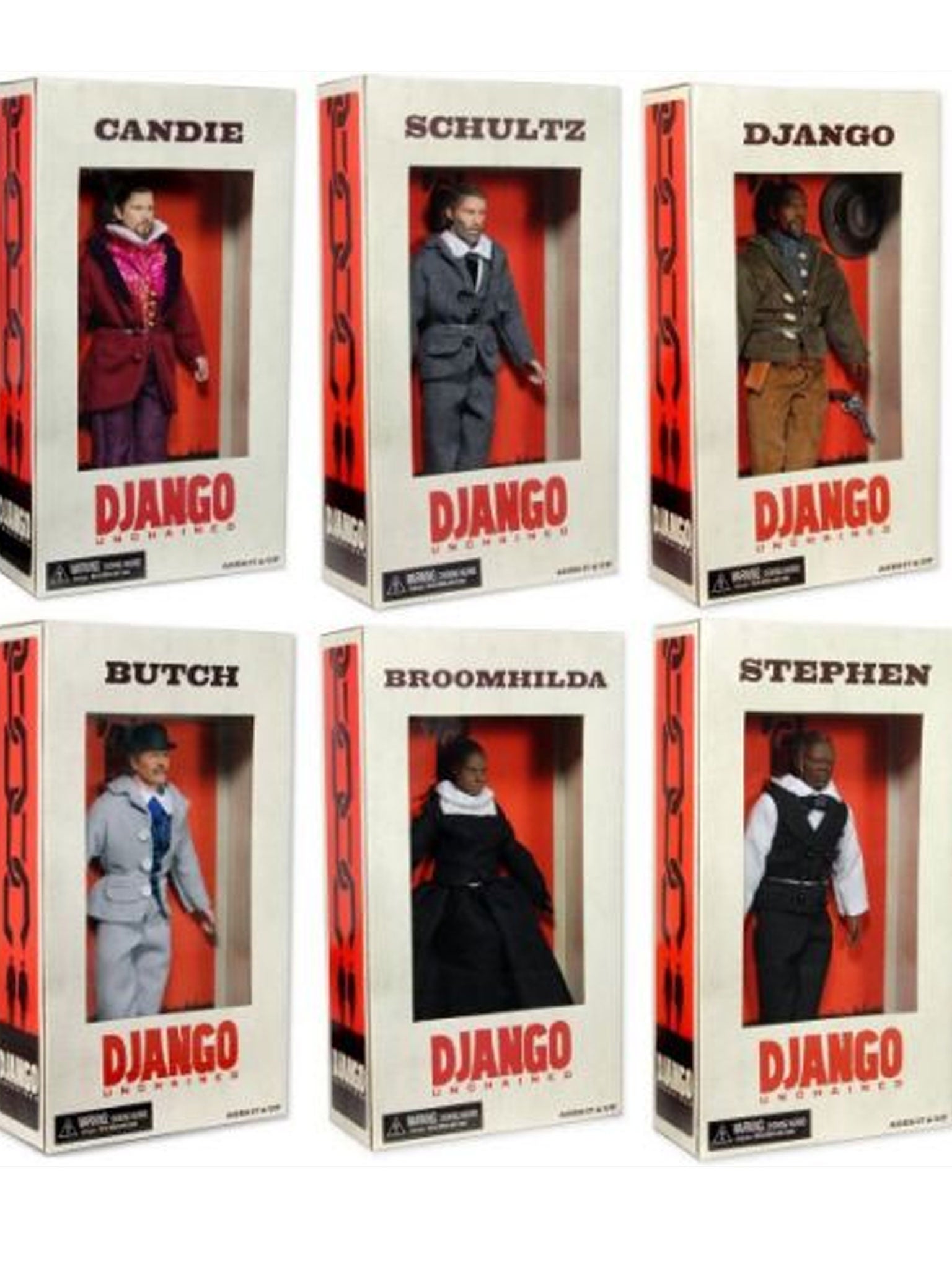Django unboxed: Doll tie-ins from Tarantino movie Django Unchained pulled from sale

Your support helps us to tell the story
From reproductive rights to climate change to Big Tech, The Independent is on the ground when the story is developing. Whether it's investigating the financials of Elon Musk's pro-Trump PAC or producing our latest documentary, 'The A Word', which shines a light on the American women fighting for reproductive rights, we know how important it is to parse out the facts from the messaging.
At such a critical moment in US history, we need reporters on the ground. Your donation allows us to keep sending journalists to speak to both sides of the story.
The Independent is trusted by Americans across the entire political spectrum. And unlike many other quality news outlets, we choose not to lock Americans out of our reporting and analysis with paywalls. We believe quality journalism should be available to everyone, paid for by those who can afford it.
Your support makes all the difference.If there was ever a set of toys worthy of the tag "not suitable for children" then it would have to be the official merchandise produced in conjunction with Quentin Tarantino's much-lauded spaghetti Western-meets-blaxploitation epic Django Unchained.
The dolls depict the film's main characters: revenge-seeking freed slave Django (Jamie Foxx), bounty hunter Dr King Schultz (Christoph Waltz) and brutal slave owner Calvin Candie (Leonardo DiCaprio), none of whom would be particularly comforting to snuggle up in bed with.
Following criticism from civil-rights groups, production of the dolls was swiftly brought to a standstill by film producers the Weinstein Company, but they could still be found being sold at massively inflated prices on eBay – some going for thousands of dollars. Last week, however, eBay also made the decision to block sales of the dolls, stating they were "in violation of eBay's offensive-materials policy".
But despite the dolls being withdrawn, the film which inspired them continues to show in cinemas. For Andrea Plaid, associate editor of Racialicious, a US blog that looks at the relationship between race and popular culture, this is because toys quite literally "play with slavery".
"It's one thing for an adult to spend money to see a racially insensitive film. The assumption is an adult has the capacity to understand it is historical fiction.
"But a toy is viewed as something to give a child who is developing their understanding of the world. I suspect the toys, and their associations with children, became a controversy that the film studio just really didn't want to get into."
Join our commenting forum
Join thought-provoking conversations, follow other Independent readers and see their replies
Comments